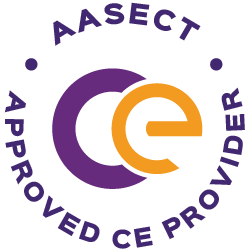Do you work as a Certified Sex Coach™️ and struggle to coach people with Erectile Dysfunction? If so, you’re not alone.
It’s important to note that at Sex Coach U, we use the term “erectile difficulties,” rather than “dysfunction.” Because we take a holistic and non-pathologizing approach to sexual concerns, we use terms that speak to the client’s experience without diagnosing or pathologizing them. Terms like erectile dysfunction can reinforce the shame and stigma that people often feel when experiencing difficulties in their sex life.
Erectile difficulties are common and affect many individuals, but this topic can be a sensitive one, so discussing it can be difficult. However, learning how to support clients experiencing erectile difficulties is essential to improve their overall sexual health and well-being.
In this blog post, we’ll explore different approaches that you can use to help your clients address this concern, from open communication and reviewing medical history to lifestyle changes, psychotherapy, medications, and devices.
So, let’s dive in and discover practical ways to assist your clients in overcoming this common challenge.
What is Erectile Dysfunction?
According to the American Academy of Family Physicians journal, “erectile dysfunction” is the inability to achieve or maintain an erection sufficient for sexual intercourse.
Although erectile difficulties can affect individuals of all ages, it is more common in older men and people with penises. This recurrent issue can have a severe impact on a person’s self-esteem, confidence, and sexual performance, ultimately affecting their emotional and psychological well-being, as well as their relationships.
As a sex coach, it’s crucial to understand how to support clients with this concern. That’s why we’ve compiled this comprehensive guide to support you in helping your clients navigate this challenging issue.
Possible Contributing Factors
Various physical and psychological factors can contribute to erectile difficulties and impact sexual performance. Physical factors such as obesity, diabetes, high blood pressure, high cholesterol, smoking, cardiovascular disease, Parkinson’s disease, multiple sclerosis, and injuries or surgeries that affect the pelvic area can contribute to ED.
Similarly, psychological factors such as anxiety, depression, stress, relationship problems, performance anxiety, and low self-esteem can also play a role.
It’s important to understand that certain medications, including antidepressants, blood pressure medications, and prostate cancer treatments, can contribute to difficulties with erections.
Understanding the underlying issue can help you and your clients identify potential solutions and take the required steps to address the issue.

Photo by Sven Mieke on Unsplash
Addressing Erectile Difficulties with Clients
There are several ways to work with your clients who are experiencing these difficulties. As a sex coach, you might decide to work in tandem with other professionals for things like medication or psychotherapy. But we can also recommend various products and offer support through different lifestyle changes.
Encourage open communication
The first step is to create a non-judgmental space where clients feel comfortable discussing their erectile challenges. Encourage them to share their feelings and concerns openly and listen actively without judgment. You can normalize the experience by sharing how common ED is and letting them know they are not alone. You can work together to find the right treatment by fostering trust and open communication.
Review medical history
Early in the intake process, you’ll want to review your client’s medical history and lifestyle factors, which may help identify the underlying causes of ED. By understanding the root cause, you can effectively tailor the action plan to address the issue. For example, if the client has high blood pressure, you may recommend lifestyle changes and refer to a medical practitioner to manage the condition.
Medications
Medications like Viagra (sildenafil), Cialis (tadalafil), and Levitra (vardenafil) can increase blood flow to the penis, which can help improve erections. However, these medications may not be effective for everyone and can cause side effects like headaches, flushing, and stomach upset. Penile injections involve injecting medication directly into the penis, which can help improve blood flow and achieve an erection.
Devices
Devices like Vacuum Erection Devices (VED) or penile injections can help improve blood flow to the penis to achieve an erection. A VED is a plastic cylinder that is placed over the penis. The device creates a vacuum that pulls blood into the penis, which can help achieve an erection.
Psychotherapy
Psychotherapy can address underlying psycho-social factors that may be contributing to ED. For example, cognitive-behavioral therapy (CBT) can help individuals develop coping strategies to manage anxiety and stress, while couples therapy can improve communication and intimacy between partners.
Lifestyle changes
Additionally, lifestyle changes such as exercising, eating a healthy diet, managing stress, quitting smoking, and reducing alcohol consumption can improve overall health and reduce ED symptoms. However, it’s important to remember that lifestyle changes should be a long-term commitment to health rather than a short-term fix for erectile difficulties. Provide resources and support for clients who want to make these changes and encourage them to set realistic goals and celebrate their progress.
How Sex Coaches Can Support Clients Who Present with Erectile Dysfunction
The specific methodology that is used by SCU Certified Sex Coaches to address clients experiencing erectile difficulties is called the MEBES® Signature System. MEBES® stands for Mind, Emotions, Body/Behavior, Energy, Spirit.
Our holistic, evidence-based, and whole-person-centered model addresses the mental, emotional, physical, energetic, and spiritual realms of each client.
Here’s a quick look at how you could use the MEBES® approach to work through this type of concern:
MENTAL
Does your client struggle with negative self talk related to their erectile difficulties? Find out what their thought patterns are and then help them with a mental reframe. Maybe this involves changing their perspective from “my body is not functioning” to “I can work through what my body is experiencing right now.”
You could also dive into their thought patterns during sex. When they experience difficulty with their erections, what are they thinking about in the moment? Help them practice mindfulness and shift their focus toward pleasurable sensations and away from their erection or lack thereof.
EMOTIONAL
How does your client feel about their current struggle? Are they ashamed? Help them work through the pervasive shame by normalizing their experience and holding space for the expression of their feelings. You could have them practice authentically sharing their emotions with their partner, or allow them to process the emotions in a safe space.
BODY/BEHAVIOR
What is your client’s current pattern of behavior? Do they shut down immediately and cease sexual activity if they don’t get the erection that they expect? Help them identify the pattern of behavior that isn’t serving them, and then work with them on adjusting it. Maybe that means suggesting they wear a penis ring or try a penis pump. Perhaps it means experimenting with new sexual activities.
Additionally, you could refer out to a medical professional to work on any underlying medical conditions or medications that could be contributing to the issue.
ENERGETIC
How does your client experience their unique sexual energy? Where do they feel it in their body and how do they express it? Work on the energy exchange between partners, or expressing their sexual energy solo. If there is a block here involving their erectile difficulties, get creative with different ways your client can unblock their energy flow. This might involve meditation, tai chi, breathwork, or art.
SPIRITUALITY
How does your client identify with their spiritual self? Address their inner world when it comes to their sexuality. Do they need to practice more self-care? Do they need to spend more time alone connecting with their inner self? Help your client cultivate a strong sense of identity or use their spirituality to strengthen their sexual experiences involving their erectile difficulties.
Co-Create An Individualized Approach
When you’re using sex coaching to help someone who identifies erectile dysfunction as their problem, it’s important to explore many different options and to co-create your approach with the client. Supporting clients who are experiencing erectile difficulties requires a compassionate, non-judgmental, and individualized approach.
By utilizing the MEBES® model to assess your client and create action plans, encouraging open communication, and referring out when necessary—you can help clients find a path to resolving their sexual concern in a way that is right for them.
Curious about training to become a Certified Sex Coach™? Join the next live Info Session to meet the SCU team and participate in a live Q&A!







